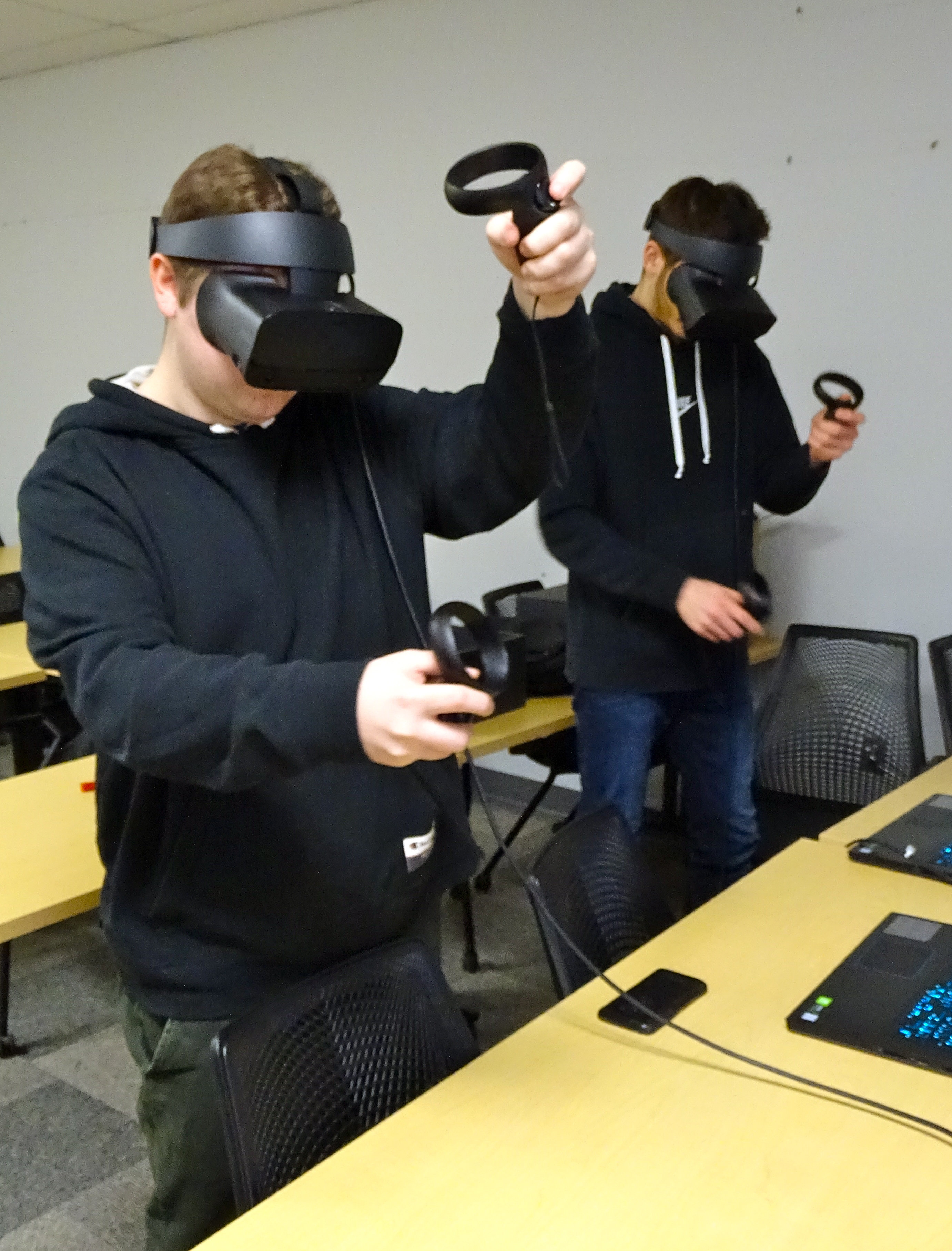A cross-departmental collaboration recently provided marketing students with an opportunity to explore virtual and augmented reality trends and technologies through an introduction and hands-on demonstration delivered by Conestoga’s Virtual and Augmented Reality Lab (VARLab).

Conestoga's VARLab team provided students in the Marketing with New Media course with an overview and demo on virtual and augmented reality trends and technologies.
“My class explores newer and emerging media and technologies in order to strategize ways to use and leverage that media in client marketing campaigns,” explained professor Sydney Pereira. “I discovered our Applied Computer Science & Information Technology department has a great VARLab. I invited the team in so that my students could learn more about the hardware used, experience it first-hand and understand the applications that can leverage VR and AR.”
Conestoga’s VARLab, launched in the spring of 2018 with support from the college’s Centre for Smart Manufacturing and Digital Innovation, specializes in creating unique training solutions for industry partners, developing new academic learning experiences and exploring new technology and trends in virtual and augmented reality.
The lab is staffed by Conestoga co-op students drawn from programs that include Software Engineering Technology, Computer Programmer Analyst and the Bachelor of Applied Health Information Sciences who engage in cross-disciplinary projects under the direction of faculty members.
“We’re doing this all with our own students whereas other institutions rely more on outside agencies to drive content generation,” said Russ Foubert, chair, Applied Computer Science & IT, who oversees the VARLab student team. “We’re student-focused and the capabilities being developed from student talent are being fed back into classroom learning.”
The concept for the lab was born out discussions Foubert had with colleague Justin St-Maurice, now the college’s associate vice-president, Information Technology. The two were exploring space utilization for some of the simulation training theatres and questioned how they could overlay different realities into a space for hands-on student training. What if a single space could be used to simulate both a hospital room and the floor of a factory? Since then, Foubert and St-Maurice have shared their experiences of establishing the VARLab at several conferences.
One of the first projects developed by the team was a health and safety virtual reality training simulation for students practicing their restaurant inspection skills.
“The feedback we received from students was really positive,” said Foubert. “Many said it allowed them to practice concepts they only heard about in lecture. Enhancing curriculum like this means we can build quicker thinking, resilient graduates, but we also want the VARLab to become a resource centre throughout the college.
The team has since developed several other training simulations, works with students to support their capstone research projects and has collaborated with applied research partners in the community to develop training solutions for various business needs.
“The tools for developers are getting better and better,” said Foubert as he discussed AR and VR with Pereira’s class. “It won’t be long before it’ll be common for people to have a virtual reality experience before they even get to work.”
Foubert added the demand for the technology is rising and employment opportunities in extended reality are increasing in the region. He believes the VARLab will help supply the pipeline of talent needed.
Conestoga is ranked among Canada’s top 12 research colleges, supporting the needs of industry and community partners while providing students with opportunities to build real-world skills. Contact Applied Research for more information.
